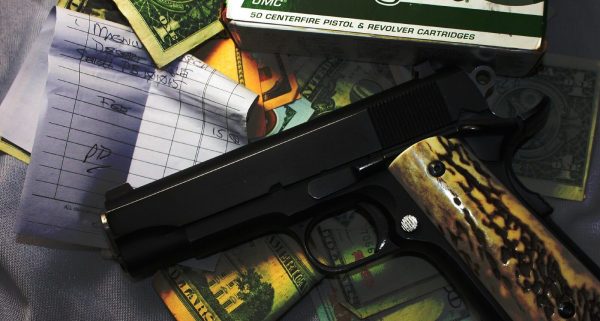
The City of Seattle is boasting about the better-than-expected success of its special beverage tax on sugary drinks, a stark contrast to the city’s reluctance to admit that another of its tax schemes – on guns and ammunition – was and remains an abject failure that required a lawsuit to force public disclosure.
According to published reports, the city during the first quarter of this year raked in a whopping $4,082,015. Revenue from this beverage tax will be used for “healthy living programs, early-learning programs, community-college scholarships, and some administrative costs,” according to The Stranger, an alternative newspaper in Seattle.
Recall last year when Seattle, after a months-long court battle, was forced to reveal that the so-called “gun violence tax” on firearms and ammunition had not come close to its projected revenue figure of $300,000 to $500,000. It took a lawsuit by the senior editor of TheGunMag.com and the Second Amendment Foundation (SAF), which owns the publication, to learn that during 2016, the first year of the tax, only $103,766.22 was brought in. That explained why the city reluctantly acknowledged in early 2017 that the tax had taken in “less than $200,000” during its first year.
Last year’s gun tax revenue was even worse, declining more than $10,000 to a total of $93,220.74.
The city argued that disclosure of the dramatically low revenue figure would have jeopardized taxpayer privacy, but a King County Superior Court judge wasn’t buying that defense. Plaintiffs in that case called the lawsuit a basic First Amendment challenge because the people have a right to know.
In an email, a now-retired former public employee observed, “Notice how quickly the City of Seattle touted the $4 million+ in sugar tax revenue for the first quarter of 2018? How long did it take them to release the amounts raised from the bullet tax! What a crock!”
That’s an interesting observation, unless one suspects that gun rights organizations that sued the city to quash the tax were right all along that this was not truly a tax issue, but a gun control scheme disguised as a tax. The lawsuit, which was rejected by the liberal Washington State Supreme Court, involved the National Rifle Association, National Shooting Sports Foundation and SAF, along with two retailers.
When the gun tax was adopted, it drove one major gun shop out of the city. Precise Shooter has relocated to suburban Lynnwood, where its Seattle customers have followed with their dollars. Outdoor Emporium has directed its gun-buying customers to its partner store in Fife, many miles south of the city, taking their money not just out of Seattle, but out of King County altogether, to neighboring Pierce County.
If that seems counterproductive for the city’s revenue picture, consider what is happening right now with the business revolt against the City Council’s proposed “head tax” on businesses. The proposal is to tax businesses for each person they employ, raising an estimated tens of millions of dollars to spend on programs for what many people are quietly calling the “professional homeless” population.
Like it or not, Seattle seems to be a model that other city governments around the country are watching, just to see what happens.
